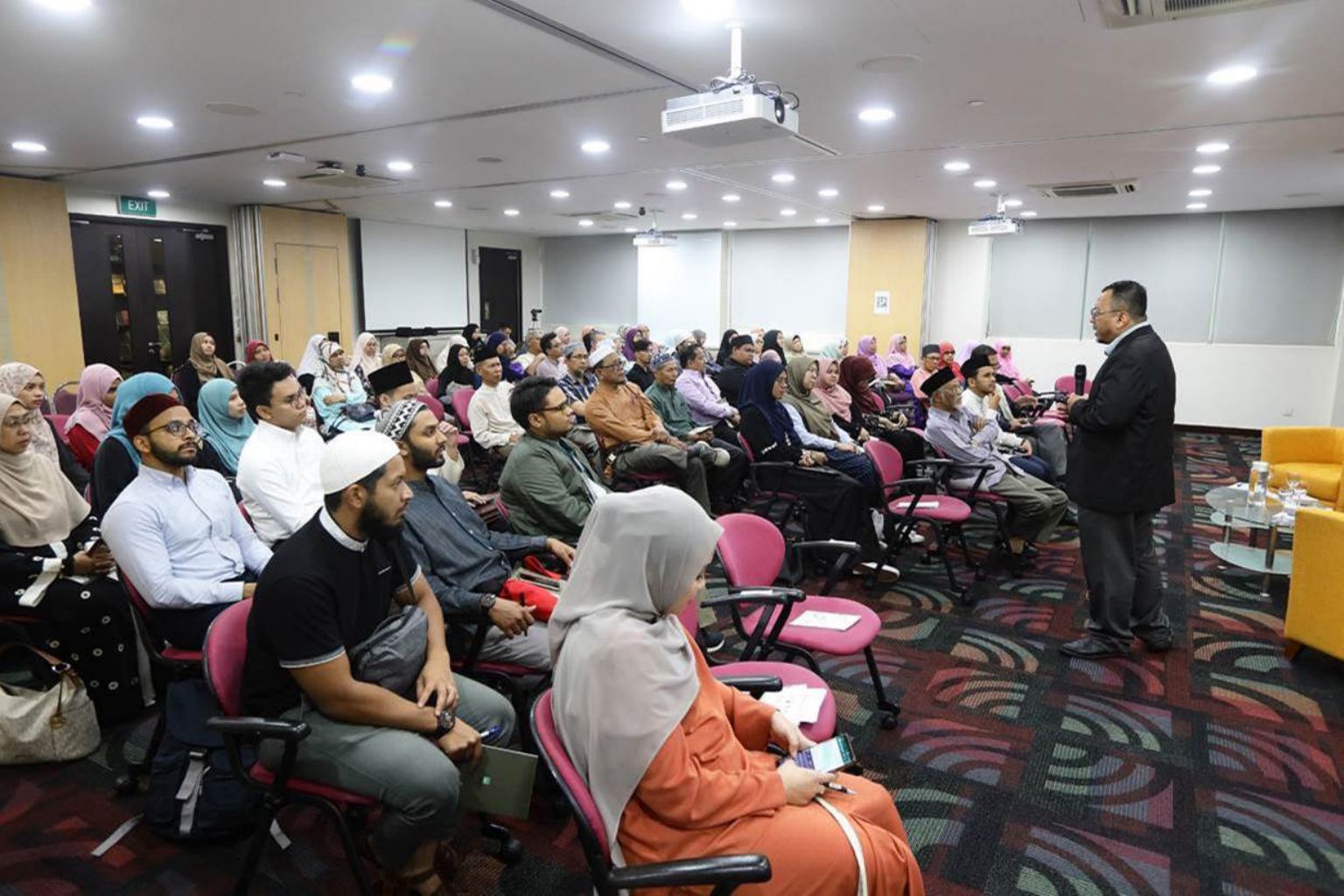Skills framework and common salary guideline among suggestions for Islamic religious teachers here
Sign up now: Get ST's newsletters delivered to your inbox

Returning graduates and their parents attend an engagement session by Muis Academy about the Postgraduate Certificate in Islam in Contemporary Societies.
PHOTO: BERITA HARIAN
SINGAPORE - Islamic religious teachers here will have a skills framework to give them access to relevant job sectors, after suggestions by a committee formed to guide their development have been accepted.
The suggestions also include a talent development programme to groom exceptional teachers, or asatizah, to be leaders in institutions. Another suggestion involves a common salary guideline for the more than 4,800 asatizah here.
The Committee on Future Asatizah (Cofa) released its recommendations on Monday (Feb 24). The suggestions come after nine months of research as well as engagements with more than 1,900 people.
Established in March last year, the 15-member committee is chaired by Senior Minister of State for Defence and Foreign Affairs Maliki Osman.
In a Facebook post later on Monday, Minister-in-charge of Muslim Affairs Masagos Zulkifli said that the accepted the recommendations from the Cofa.
He said: "The Islamic Religious Council of Singapore (Muis) will continue to work with Cofa and the asatizah sector to implement these recommendations, so that our asatizah can continue to play a crucial role as leaders, professionals and role models for Muslims in our multicultural and contemporary society."
The development of asatizah was raised in Parliament last year by MPs such as Professor Fatimah Lateef and Mr Saktiandi Supaat during the debate on the budget of the Ministry of Culture, Community and Youth.
Dr Maliki on Monday said Cofa's recommendations will help future religious teachers function as leaders and exemplary professionals, so that they can effectively guide Muslims here and help ensure peace and harmony continue to prevail in Singapore.
"Our asatizah's key roles as leaders, professionals and role models are vital for the well-being, success and cohesiveness of our Muslim community and the larger Singapore society," he said.
But asatizah will need to be able to complement religious knowledge together with an understanding of contemporary issues and fields, Dr Maliki noted.
They will have to continue playing an active role in helping the Muslim community deal with future challenges in new and complex fields like the biomedical sciences and Internet of Things, as well as evolving social norms.
He said: "Demand for guidance on religious and ethical questions surrounding emerging technology is also expected to rise.
"Future asatizah will be consulted on questions related to biomedical breakthroughs, future financial products and technologies, novel foods and many other aspects that have bearing on the community's socio-religious life."
To ensure they maintain quality standards and abide by a shared code of ethics, Dr Maliki said more work is needed to build on existing efforts to professionalise the asatizah.
Besides organising a talent development programme that will train asatizah to fill leadership positions, and putting in place a skills framework to help them upgrade and stay relevant, Cofa also recommended that asatizah have a common salary guideline so that their pay increases in tandem with their skills.
Dr Maliki said institutions to support asatizah also need to be strengthened.
In a release on Monday, Muis said that Cofa recommended enhancing career guidance and internship programmes for asatizah in religious schools, and establishing a liaison office to guide asatizah on job or professional development opportunities.
Cofa also recommended that support for individual asatizah be strengthened, through steps like increasing help for overseas religious undergraduates and postgraduates in skills upgrading during their period of study.
Speaking at a ceremony at the Yusof Ishak mosque in Woodlands to appoint the new Asatizah Recognition Board - a three-year term panel appointed by Muis that accredits asatizah - Dr Maliki commended the work asatizah have done recently in advising Muslims here on how to take care of themselves following the coronavirus outbreak.
For instance, some have distributed hand sanitisers to mosques, he said.
Mr Masagos had also thanked mosque and Islamic religious school leaders in a meeting on Feb 22 for their work in the fight against the coronavirus.
He noted that they have been actively spreading the message of good personal hygiene to congregants.


